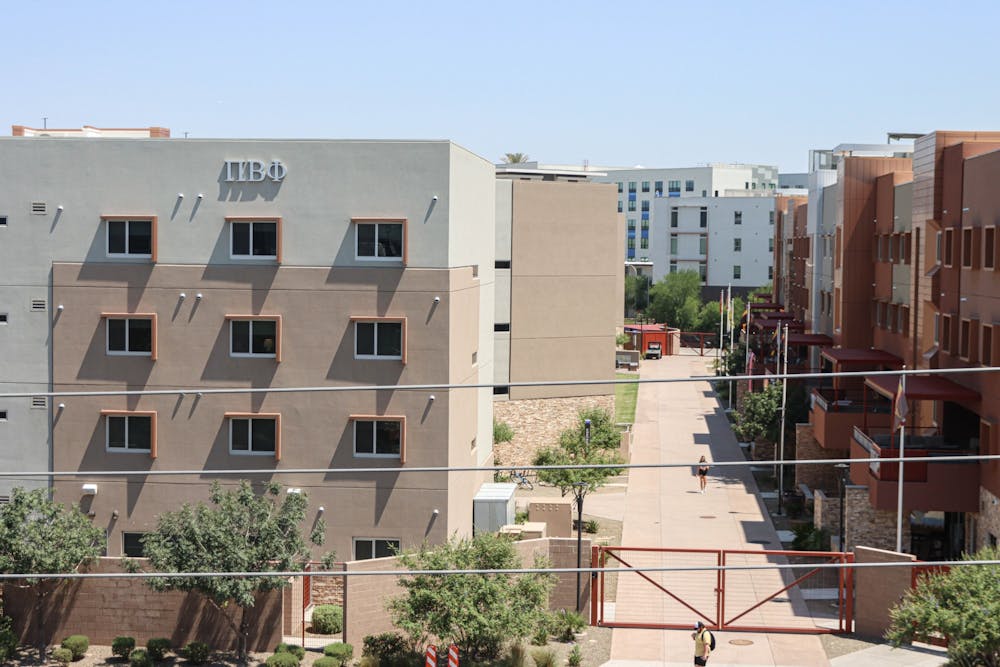We've all seen those college movies that depict a large house of brothers and sisters partying and living it up with one another beneath the large, bold Greek letters of their chapter house. Some of us may have even daydreamed about being a part of one ourselves.
But for some people, there's always that feeling of being excluded by even some of the most welcoming groups on campus.
We should look to start actively integrating diversity within Greek Life by not only promoting a more open and inclusive Greek culture, but also promoting and treating multicultural Greek organizations with as much recognition and conventionalism as the other more mainstream fraternities and sororities.
I, as a person of color, felt as though these organizations were already unwelcoming just from the lack of diversity plastered on the pages of their websites and pictures posted to their social media.
I see a series of boys and girls who all look similar to one another with pale skin and blonde hair and can't help but be put off by how these Greek organizations brand themselves to be diverse, yet at the same time only showcase one group of people.
I believe that in order to better represent the diverse student body at ASU, they should try to be more genuinely inclusive rather than displaying tokenism in their inclusion of students of color.
While some may find a welcoming environment of open doors and social opportunities within these communities, others find themselves facing closed doors and feelings of ostracism due to their individual identities that can separate them from the rest of the communities.
"When you're in a state like Arizona, a predominantly white state, as a person of color you want those places and that community where you can just be with people who look like you, who grew up like you, and who have the same experiences as you, and you won't feel judged," said Meli Ramirez, a sophomore studying psychology and neuroscience and member of Pi Lambda Chi.
The first week of my sophomore year, I went to TaylorFest at the Downtown Phoenix campus. I had every intention of trying and get connected to some of the organizations I'd heard so much about online over the course of my freshman year.
But I was quickly discouraged when I walked out to find that the majority of every person standing in front of the long series of booths along Taylor Street were exclusively white women, save for a few tables where a handful of small Black and Latine fraternities and sororities were down at the very end.
"They use the word diversity a lot, but it doesn't really have any meaning at the end of the day when they choose their sisters and brothers to join Greek Life," said Hannah Moton, a sophomore studying exploratory social behavioral sciences who was interested in joining Greek Life.
"They are not really considering the fact that we have all these different categories, all these different groups of people, and yet ... (they're) still only accepting a small number of people and those people tend to be white, tend to have blonde hair, tend to come from a place of wealth," Moton said.
Take, for example, multicultural Greek organizations.
"Recently, we had a block party event for all Greek Life, and you see, like all the big sororities, they're in their houses all dressed up ... all in their little space. And we had a tiny little table on the lawn," Ramirez said. "It's weird. Like, you feel uncomfortable. It's like you're a part of Greek Life, you're a part of the same thing, but it doesn't feel the same."
And while multicultural Greek Life is supposed to be yet another branch of Greek Life, its very existence raises the question of why there even needs to be multicultural Greek organizations to represent students from marginalized communities when the more mainstream fraternities and sororities claim to be diverse.
"Multicultural fraternities and sororities really shouldn't have to exist if, from the beginning, sororities and fraternities were a lot more accepting of these diverse parties," Moton said.
"I remember hearing that since a lot of marginalized students couldn't afford to go to college, the fraternities and sororities really didn't have to put in the effort to be inclusive. But now that there are minorities that attend the school that's trying to be a lot more inclusive towards these different … minorities, sororities and fraternities really haven't caught up to pace with everything," Moton said.
Reach the columnist at amvald11@asu.edu and follow @anxieteandbread on Twitter.
Editor's note: The opinions presented in this column are the author's and do not imply any endorsement from The State Press or its editors.
Want to join the conversation? Send an email to opiniondesk.statepress@gmail.com. Keep letters under 500 words and be sure to include your university affiliation. Anonymity will not be granted.
Like The State Press on Facebook and follow @statepress on Twitter.
Continue supporting student journalism and donate to The State Press today.

Analisa Valdez is a reporter with the Echo, focusing on covering the arts and entertainment world. Analisa has been apart of the State Press for two and a half years and is in her third year at the Walter Cronkite School of Journalism and Mass Communication.




